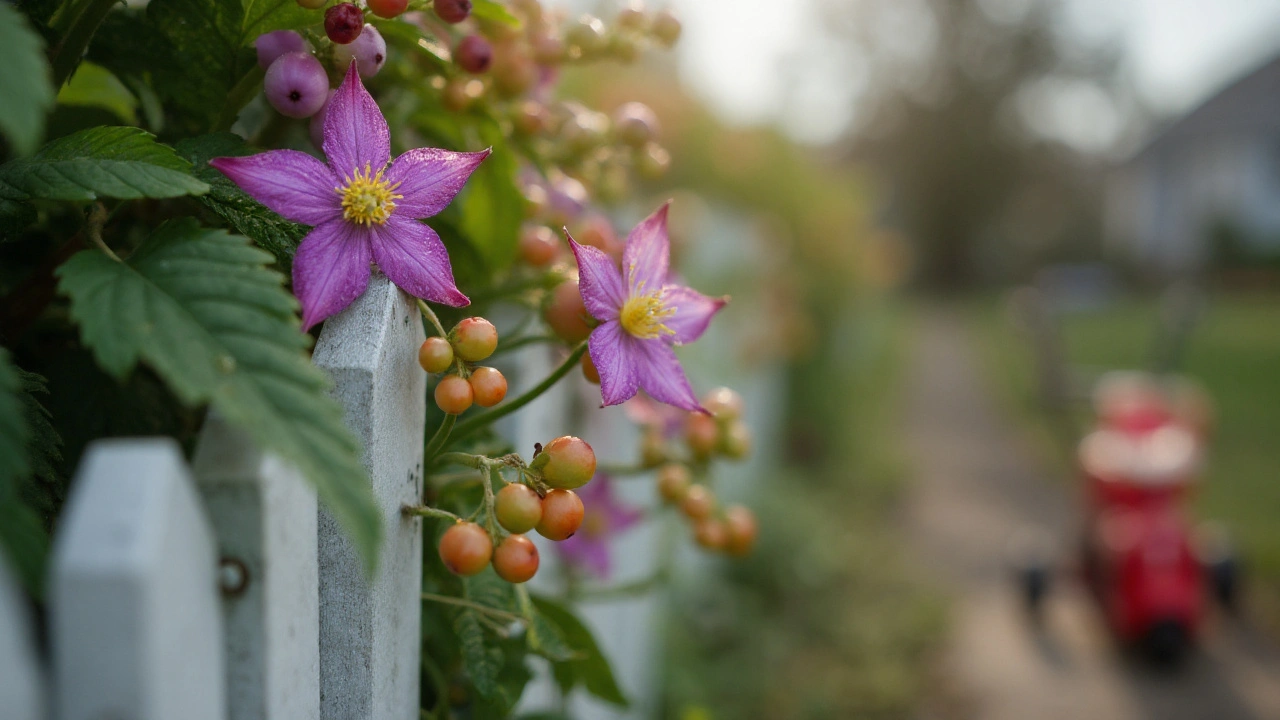Solanum dulcamara – What It Is and Why It Matters
If you’ve ever seen a vine with bright red berries climbing a fence, you’ve probably met Solanum dulcamara, also called bittersweet nightshade. This plant has been used in Ayurveda and folk medicine for centuries, mainly to tackle skin irritations, joint pain, and digestive issues. Today, scientists are testing some of those old claims, and the results are a mix of promising and cautionary.
Traditional Uses and Modern Evidence
Traditionally, the leaves and berries were boiled into teas or made into tinctures. People used the tea to soothe coughs, the leaf poultice for minor wounds, and the root for rheumatic pain. Modern studies have found that the plant contains alkaloids, flavonoids, and saponins that can act as mild anti‑inflammatory agents. One small lab study showed a reduction in swelling when an extract was applied to rat paws, but human trials are still limited.
Because of the anti‑bacterial compounds, some home‑remedy fans apply a fresh leaf paste to acne or fungal infections. The evidence for this is anecdotal, but the chemistry suggests it could help keep microbes in check. If you decide to try a topical application, always do a patch test first—some people get skin irritation.
How to Use It Safely
Safety is the biggest issue with Solanum dulcamara. All parts of the plant contain solanine, a toxin that can cause nausea, vomiting, and in high doses, more serious symptoms. That’s why you should never eat the berries straight from the vine. If you want to make a tea, use only a few leaves, steep for 5‑10 minutes, and limit yourself to one cup a day.
Dosage guidelines are not officially set, but most herbalists recommend 1–2 grams of dried leaf material per day, split into two doses. For tinctures, a typical concentration is 1:5 (plant to alcohol), with a dose of 10‑20 ml taken two to three times daily. Always start low and see how your body reacts.
Pregnant or breastfeeding women should avoid this herb completely—there’s not enough safety data, and the solanine risk is higher. Also, if you’re on prescription meds like blood thinners or antidepressants, talk to a pharmacist first; the plant can interfere with drug metabolism.
In summary, Solanum dulcamara offers some interesting traditional benefits, but the potential for toxicity means you need to be careful. Stick to small, well‑prepared doses, avoid raw berries, and check with a health professional if you have any doubts. When used responsibly, this climbing nightshade can be a handy addition to your natural‑health toolkit.
